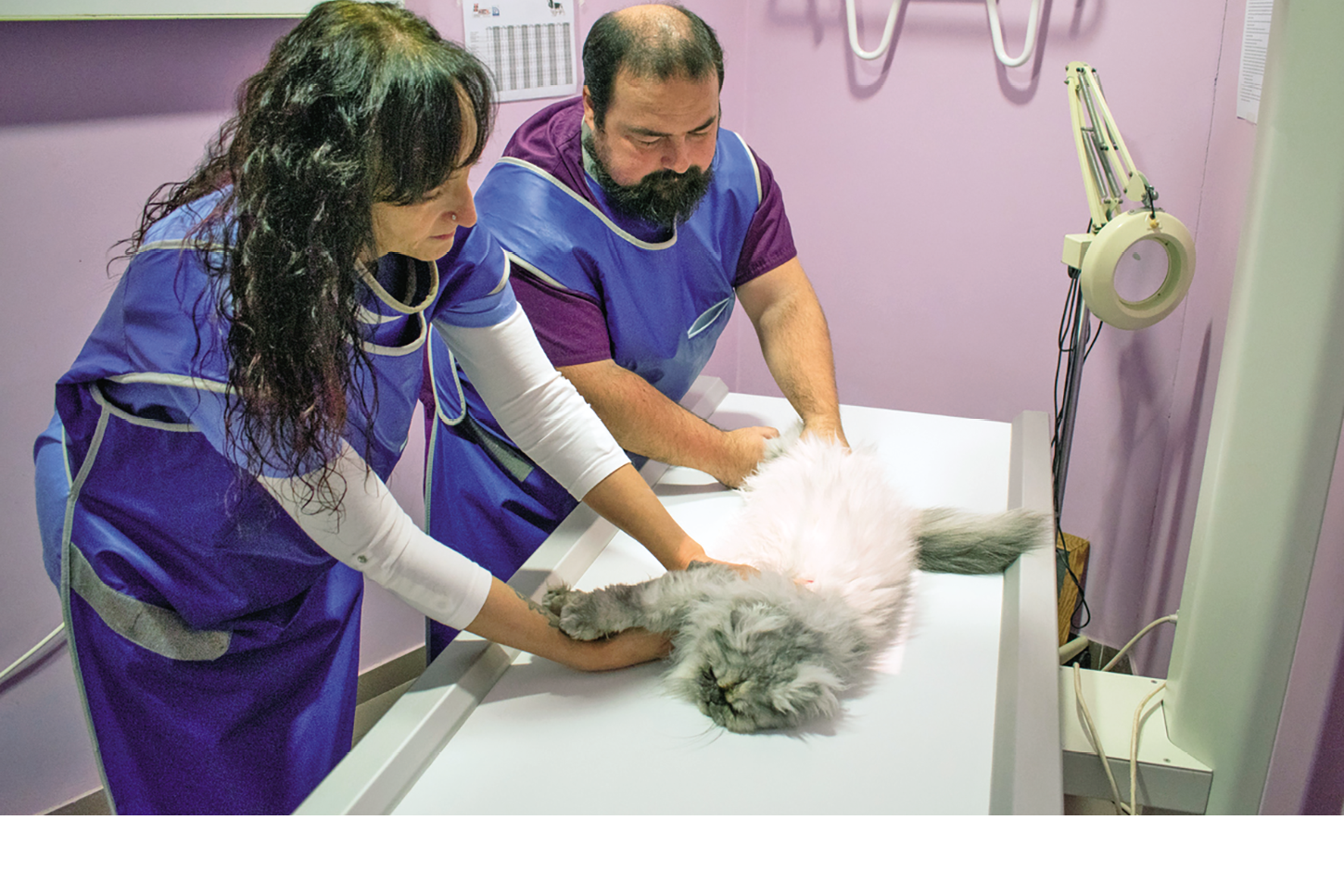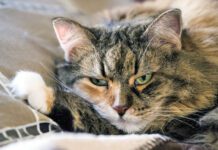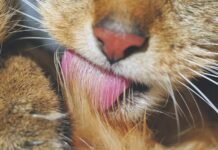Research addressing heritable feline diseases has been limited compared to that in dogs, but the interest is there, and studies are ongoing. The more we can learn about heritable diseases, the better prepared we are to prevent them.
If you are looking for a purebred cat to add to your family, it is worth going to the Orthopedic Foundation for Animals (OFA) website to explore possible health testing for that breed and talking with your veterinarian about what you find at the website.
Cats can be registered with OFA for cardiac, patellar luxation, and hip dysplasia testing. You can search the OFA database under a breed for all cats that have been tested for a particular disease or search by the name of a particular cat.
Patellar luxation requires manipulation by a veterinarian, hip dysplasia requires radiographs, and cardiac evaluations require an exam by a board-certified veterinary cardiologist to be included.
Watching for Genetic Defects
In addition to the phenotypic traits that the OFA registry covers, there are some options for DNA testing, including tests that cover genetic defects your cat might be at risk of developing or be a carrier for. These diseases include vision problems, kidney disease, heart disease, and various metabolic disorders.
Genetic screening panels look at a wide range of feline diseases that are genetically mediated. While not inexpensive, they can be an efficient way to screen a cat for potential health issues that may develop. The companies that offer these screenings may retain some DNA material for future research, and if they do, they will usually inform you of this and ask your permission to do so.
These genetic panels also provide information about the genetics of coat color, blood type, and other aspects of a cat’s morphology and physiology. Unfortunately, the genetic mechanisms of most feline diseases have yet to be determined.
Drawbacks
Nothing’s perfect, of course, and the fact that some of these screening tests can be expensive is an important consideration. Some tests, like hip X-rays, are done once in a cat’s lifetime. Other tests, like cardiac exams, may require periodic reevaluations.
Unfortunately, a cat’s genetic information can be abused or be misinterpreted. For example, a cat who is identified as a carrier of a genetic mutation that has been associated with disease may be shunned by some breeders, in some cases unnecessarily reducing the gene pool. In many cases, such a cat could still be bred relatively safely with appropriate genetic testing of potential mates and careful breeding strategies, i.e., only breeding with cats that are genetically normal for a mutation that may be associated with a specific disease.
Genetic tests can identify cats at risk for specific diseases, but it’s important to realize that, in many cases, cats at genetic risk of a disease will not ultimately develop the disease. This depends upon a number of things, including the mode of genetic inheritance (i.e., dominant versus recessive) and the effects of non-DNA mediated influences on gene expression (referred to as epigenetics).
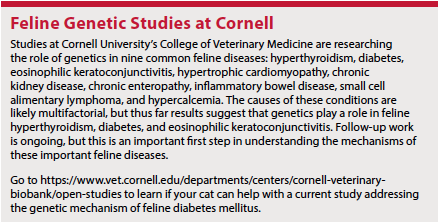
In some instances, sales contracts for the purchase of kittens may require you to obtain health screenings even if the kitten is the result of a mating between two genetically cleared parents. This is generally for the good of the breed, as by testing all the kittens produced, a breeder has a better idea of the genetic risk of certain diseases in their line.
Help With Costs
Fortunately, resources to help keep expenses for health screening affordable are available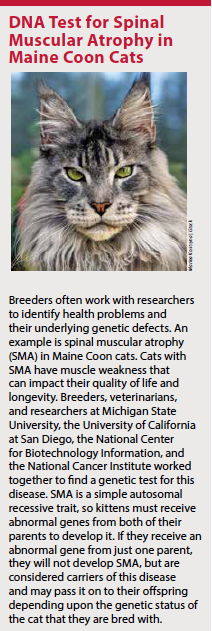 to some feline enthusiasts. For example, The International Cat Association (TICA) has a partnership with Optimal Selection, a company that provides veterinary genetic screening, to offer genetic screening of cats at a discount to its members.
to some feline enthusiasts. For example, The International Cat Association (TICA) has a partnership with Optimal Selection, a company that provides veterinary genetic screening, to offer genetic screening of cats at a discount to its members.
The Veterinary Genetics Laboratory at the University of California at Davis offers a range of feline genetic testing, from coat color to blood typing to disease screening. You can choose which tests are relevant for your individual cat. Some cat shows sponsor discounted health-clinic screenings for things like heart disease.
Both genetic and non-genetic health screenings provide a way for us to improve feline well-being by being proactive about identifying risks for disease and using this information to make informed decisions about breeding and monitoring of cats for specific diseases.

